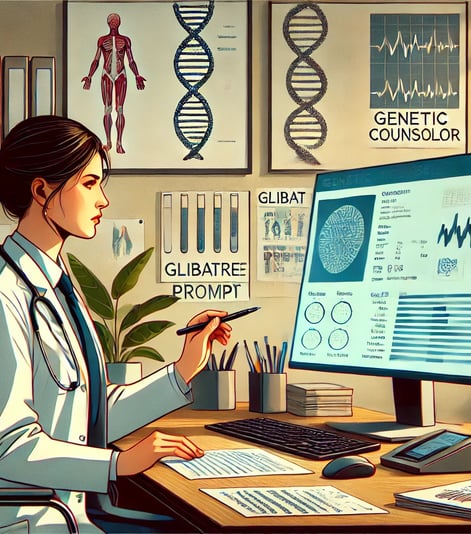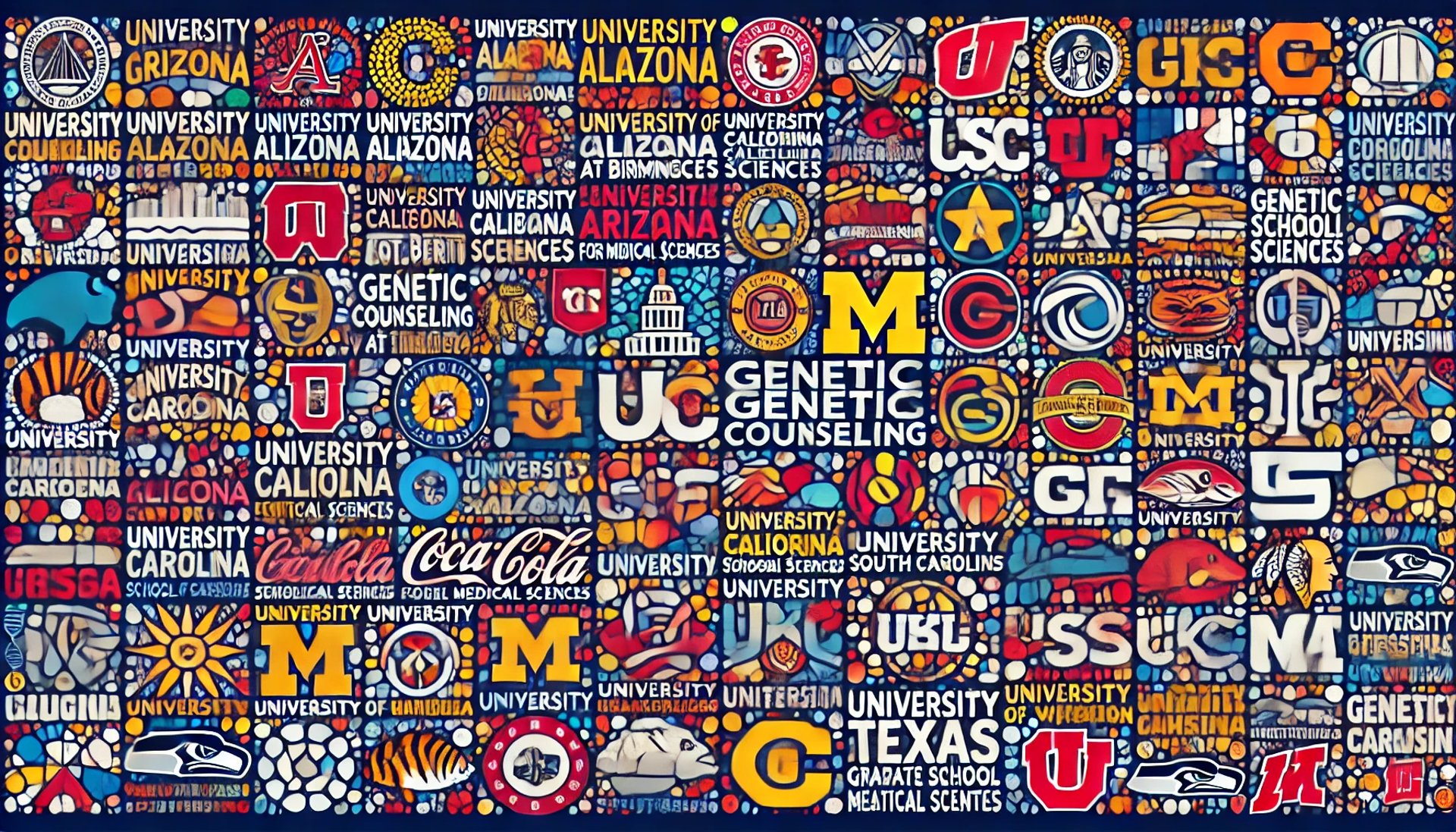How to Ace Your Genetic Counseling School Interview: Tips and Strategies
Discover essential tips and strategies for acing your genetic counseling school interview and making a strong impression.
SCHOOL ADVICESCHOOL PROFILESCHOOL NEWS


How to Ace Your Genetic Counseling School Interview: Tips and Strategies
How to Ace Your Genetic Counseling School Interview: Tips and Strategies
The journey to becoming a genetic counselor is both challenging and rewarding. One of the critical steps in this journey is acing the genetic counseling school interview. This process is not just about showcasing your knowledge but also about demonstrating your passion, interpersonal skills, and unique qualifications. In this guide, we'll explore comprehensive strategies to help you prepare effectively for your interview.
Understanding the Importance of Unique Qualities
When preparing for a genetic counseling school interview, it's crucial to highlight what sets you apart from other candidates. Admissions committees are looking for individuals who bring unique perspectives and qualities to their program. Reflect on your background, experiences, and any specific passions related to genetic counseling. For instance, if you have personal or family experiences with genetic conditions, this can provide a powerful narrative that underscores your motivation and commitment to the field.
Articulating Your Motivation for Genetic Counseling
A common interview question is, "Why do you want to be a genetic counselor?" This question requires a deep, thoughtful response that goes beyond generic statements like "I want to help people." Instead, delve into specific experiences or moments that ignited your passion for genetic counseling. Perhaps you were inspired by a particular case study during your education or had a meaningful interaction with a genetic counselor. Your answer should reflect a genuine and profound understanding of what the profession entails and why it resonates with you.


Preparing for Common Interview Questions
Familiarizing yourself with typical interview questions can significantly boost your confidence and performance. Here are some common questions and strategies to answer them effectively:
Describe a time when you had to manage a crisis situation related to a patient’s genetic test results.
Share a detailed example that highlights your problem-solving skills, ability to communicate complex information, and emotional support for the patient.How do you ensure accuracy in data collection and analysis?
Discuss your methods, such as double-checking work, using software for verification, and collaborating with colleagues. Mention any specific training in data management.Have you worked with patients from diverse cultural backgrounds? How did you handle it?
Provide examples of tailoring your communication and approach to meet the needs of diverse patients. Emphasize your commitment to cultural competence.


Addressing Weaknesses Positively
Everyone has weaknesses, and acknowledging them can demonstrate self-awareness and a commitment to personal growth. When asked about your weaknesses, choose an area you are actively working to improve. For example, you might discuss how you are improving your public speaking skills by attending workshops or practicing with peers. This approach shows that you are proactive and dedicated to continuous self-improvement.
Maintaining Professionalism in All Interactions
Remember, professionalism is key in every interaction, from emails to campus visits. Treat every communication as part of your interview. This includes being prompt in your responses, respectful in your tone, and attentive to details. During campus visits, engage genuinely with faculty and current students, as these interactions can leave a lasting impression.
Researching the Program and Faculty
Thoroughly researching the program you are applying to is essential. This not only shows your genuine interest but also helps you tailor your answers to align with the program’s values and strengths. Look into the faculty's research interests, the program's unique features, and any special initiatives they may have. Prepare insightful questions that reflect your research, such as asking about specific faculty projects or opportunities for student involvement in research.
Being Authentic and Genuine
Authenticity is crucial in your interview. Admissions committees want to see the real you, not a rehearsed version of what you think they want to hear. Be honest about your experiences, motivations, and aspirations. This genuine approach helps ensure that you find a program that truly fits you and your career goals.




Genetic Counseling School Common Interview Questions
To further aid your preparation, here are some common questions you might encounter and tips on how to approach them:
Why do you want to be a genetic counselor?
Reflect on personal experiences or passions that led you to this career. Avoid generic answers and provide specific motivations.Describe a time when you had to manage a crisis situation related to a patient’s genetic test results.
Provide a detailed example focusing on communication, emotional support, and problem-solving skills.How do you ensure accuracy in data collection and analysis?
Discuss your methods, training, and commitment to meticulous data management.Have you worked with patients from diverse cultural backgrounds? How did you handle it?
Share experiences and emphasize your commitment to cultural competence and continuous learning.What strategies would you use to increase awareness of genetic counseling services in underrepresented communities?
Propose initiatives like partnerships with local organizations and creating culturally tailored educational materials.What is your greatest weakness?
Identify a genuine area for improvement and discuss steps you are taking to address it.How do you stay current with developments in genetics research?
Talk about attending conferences, participating in workshops, subscribing to journals, and networking with colleagues.What qualities make you an ideal candidate for this program?
Highlight your academic background, relevant experiences, and unique personal qualities.




Detailed Question List for Genetic Counseling School Interviews
Personal Motivation and Background
Tell us about yourself and your background.
What motivated you to pursue a career in genetic counseling?
How did you first become interested in genetics?
Why do you want to attend this specific genetic counseling program?
What personal qualities do you possess that make you a good fit for this profession?
Academic and Professional Preparation
Describe your academic background and how it has prepared you for this program.
What relevant experiences (e.g., internships, volunteer work, research) have you had in genetics or counseling?
How have you kept current with developments in the field of genetic counseling?
What coursework or experiences have you found most challenging and how did you overcome them?
Understanding of Genetic Counseling
What do you see as the primary roles and responsibilities of a genetic counselor?
How do you think genetic counseling differs from other forms of counseling?
Can you discuss a time when you had to explain a complex scientific concept to someone without a scientific background?
What are some of the ethical issues you might encounter as a genetic counselor?
Interpersonal and Communication Skills
Describe a situation where you had to handle a difficult conversation. How did you manage it?
How do you handle stress and maintain self-care in a demanding environment?
Give an example of a time when you worked as part of a team. What was your role?
How do you approach building rapport with clients from diverse backgrounds?
Scenario-Based Questions
Imagine a client is upset after receiving genetic test results. How would you handle the situation?
How would you explain the concept of genetic risk to a patient who is anxious and has little scientific knowledge?
A couple comes to you for counseling about a hereditary condition. One partner is reluctant to proceed with genetic testing. How would you navigate this situation?
Professional Development and Future Goals
Where do you see yourself in five years?
What aspects of genetic counseling are you most passionate about and why?
How do you plan to contribute to the field of genetic counseling?
What are your career aspirations beyond becoming a genetic counselor?
Reflective and Ethical Questions
Can you describe a time when you faced an ethical dilemma and how you resolved it?
What do you think is the most significant issue currently facing the field of genetic counseling?
How do you stay informed about new developments in genetics and healthcare?
What do you think is the role of a genetic counselor in advocating for patients?
Miscellaneous
Do you have any questions for us about our program?
Is there anything else you would like us to know about you or your application?









Thinking of Programs in Tennessee, Ohio, or North Carolina?
Check Out List My Nest North Carolina for local market insights
Check Out List My Nest Tennessee for local market insights
Check Out List My Nest Ohio for local market insights

Comprehensive List of Accredited Genetic Counseling Programs in the US
Tips for Success in Genetic Counseling Interviews
Be Honest and Authentic: Interviewers appreciate genuine responses and a clear sense of your personal journey. Authenticity helps build a connection and shows that you are a good fit for the program.
Prepare Specific Examples: Think of experiences that highlight your skills and suitability for the field. Use the STAR method (Situation, Task, Action, Result) to structure your answers clearly and effectively.
Understand the Profession: Demonstrate your knowledge of genetic counseling and current trends or challenges. This shows your dedication and preparedness for the role.
Practice Self-Care Strategies: Be ready to discuss how you manage stress and maintain a healthy work-life balance. This is crucial for a demanding career in genetic counseling.
Ask Insightful Questions: Show your interest in the program by asking thoughtful questions about the curriculum, faculty, and opportunities for professional growth. This reflects your enthusiasm and commitment.
Practice Answering Questions Out Loud: This helps manage nerves and refine your responses. Consider mock interviews with friends, family, or mentors.
Consider Logistical Aspects: Plan your outfit and arrival time to ensure you present yourself well and feel confident. Professional attire and punctuality are essential.
Send Thank-You Notes: After interviews, send personalized thank-you notes to your interviewers. This leaves a positive, lasting impression and reinforces your interest in the program.
By focusing on these strategies and preparing thoroughly, you can approach your genetic counseling school interview with confidence and clarity. For more detailed guidance, refer to resources like the Ohio State College of Medicine's tips on preparing for interviews, My Gene Counsel's advice, and example questions from sites like CLIMB and InterviewPrep.








